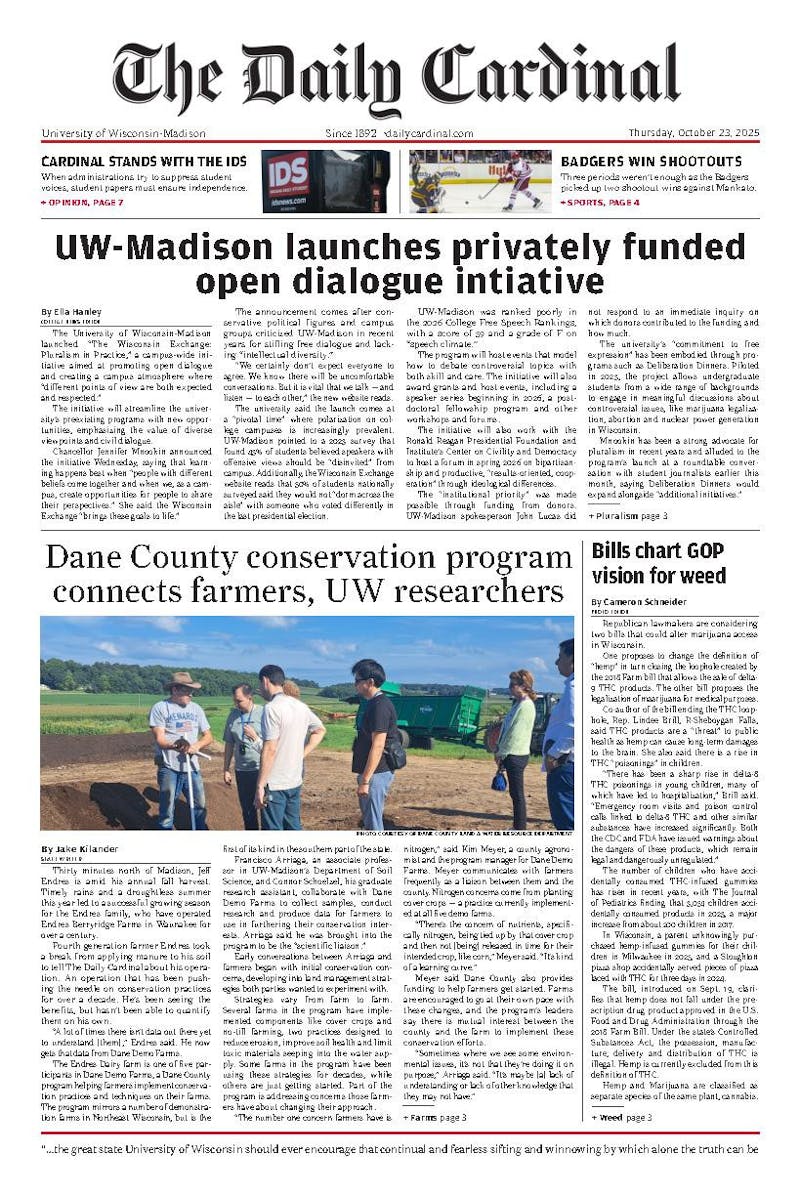The University of Indiana-Bloomington shut down their newspaper’s print product Oct. 15 and fired the paper’s advisor, Jim Rodenbush, after he opposed the university’s directive to print “nothing but information about homecoming — no other news at all” in its physical issues.
The Daily Cardinal Editorial Board stands with the reporters and staff of the IDS in their resistance to censorship.
Unfortunately, this is not an isolated incident. As student journalists, we regularly face barriers — albeit not outright censorship — from campus administration and public officials in our reporting, even though we are an independent news source.
Increasingly, we are directed to university communications instead of receiving the opportunity to speak to potential sources on the record.
When Cardinal reporters have approached university officials in-person there have been instances where reporters were repeatedly handed business cards to university communications instead of officials answering our questions or even conversing with us. When university officials have spoken to us at events, they’ve directed us to only question them on particular topics. About a month ago, a university spokesperson interjected in a conversation between a potential source and a reporter. Interactions like this are routine for student journalists.
Censorship isn’t always loud. Sometimes it comes from the fear of backlash or a subtle warning from administrators.
Rodenbush’s termination was allegedly caused by his “lack of leadership and ability to work in alignment with the University’s direction for the Student Media Plan.” IU Chancellor David Reingold reinforced this message, claiming the administration’s decision “concerns the medium of content, not editorial content” and said the university “has not and will not interfere with their editorial judgment."
But those words ring hollow for staff at the IDS, whose publication was not on newsstands Oct. 16 and will not be for the foreseeable future.
Many are quick to critique the Trump administration’s repeated attacks on the free press, but far from the halls of power on college campuses across the country, similar abuses are carried out daily without reproach.
Student journalists are not alone in facing increased pressures from people in positions of power.
Watchdog journalism is the backbone of a free press. It is uncomfortable by design. It asks hard questions, uncovers wrongdoing and demands accountability. That duty does not disappear just because the journalist works for a student paper rather than a major news organization.
While our universities claim to support free speech and “pluralism” amid scrutiny from conservative groups that campuses have become echo chambers, it is impossible to do this while withholding press access to campus newspapers, the very places these open dialogues have been taking place for decades.
It was our predecessors here at the Cardinal who promoted campus awareness and support for student demonstrations against the Vietnam War — actions now studied in American History courses. Student press are active participants in history, shaping university policy and the way members of the community understand local news.
When journalists lose their platform, it leads to irreparable repercussions. Our independence as a student-run newsroom lets us make sure that doesn’t happen.
Journalism has never been perfect, but it rarely wavers from holding power accountable. Anytime student newspapers are punished for that work, it sends a dangerous message.






